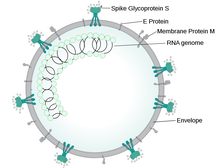 iThis blog post is based on a conversation between Lubor Gaal, senior vice president and head of Europe at the global life science transaction firm Locust Walk, and the #CoffeeBuddies, a virtual discussion group hosted by Graham Combe and chaired by Professor Tony Sedgwick. Book to join #CoffeeBuddies on Tuesdays and Thursdays at 2.30pm BST (GMT+1hr) at EventBrite. Dealmaking in the 21st century is the life blood of the pharma and biotech industries, and it relies on the in-depth knowledge of the business development teams on both sides of the deal. They need a set of skills and knowledge:
The core of dealmaking Dealmaking is a systematic and strategic process. The business development team from the big pharma needs to know what the scientists are looking for – almost a Christmas present list – and then find out whether these assets exist in the real world. In turn, the strategic approach for biotech BDs is to know who to talk to, and what and how to pitch. It's easy, especially for new BDs, to want to talk to anyone and everyone, but it's important to provide the right people with information on the right asset. Working and making deals pre- and post-Covid-19 Prior to the Covid-19 pandemic, there had been a shift in investments, with VCs leaning towards investments in early stage companies and assets, which is good news for European entrepreneurs. This was a change to previous years when investment had focused on much later stage research. This could be because of a historical lack of funding for preclinical and early clinical research in biotech and small pharma meaning a dearth in the current late stage pipeline. There have also been early signs of a shift towards regional investments, for example Chinese investors looking for local deals after they have been prevented from investing in the US. However, companies making deals need to be aware that local rights could potentially limit future global deals. During the current lockdown, some companies are continuing dealmaking as normal because of projects set up prior to the outbreak, and some are taking a strategic pause. Gaal said that he is currently transacting and reaching out for assets based on conversations that kicked off during 2019. There is money available now from companies and investors, but access to this may drop long term. Once lockdown begins to lift, and the world returns to some kind of new normal, it may reveal which were the stronger (or at least better funded) companies, and which haven't survived, much as happened after the financial crisis in 2007-2008. As with the financial crisis, share prices have dropped. This could make negotiation harder on both sides, with smaller companies looking for pre-Covid-19 value in assets to keep them afloat, and bigger companies needing to fill their pipelines but having less money in their pockets. While China is likely to remain a big market and a potential partner, there may be a shift in manufacturing away from China and into Europe. Working in the Covid-19 space Companies that were already working in the virology space have shifted investment into developing coronavirus vaccines, with the World Health Organisation (WHO) currently tracking the development of 76 Covid-19 vaccine projects. Of these, five are already in clinical evaluation. It is far too early to see if vaccines, or even the disease itself, provide long-lasting immunity. Success in this space could make the industry stronger, and improve the public's understanding of its importance, but if pharma and biotech are unable to come up with a prophylactic vaccine or a drug or antibody treatment, the impact in the form of falls in funding and in public trust could be seen across the industry. There hasn't been a noticeable shift towards Covid-19 work for companies outside the field in the short term, but it's hardly surprising that it is being left to the experts in the field. However, the impact of Covid-19 as an emerging disease, and the chance of other emerging diseases in the future as a result of climate change, could mean that there will be a movement into new infections in the longer term. The impact of success and failure in companies working in the Covid-19 space has already been seen in the value of companies. Gilead's remdesivir, touted as a potential treatment for the infection, has failed in its first randomised clinical trial, according to accidentally-published documents. The company's share value had risen in anticipation but fell when the data from the Chinese trial, revealed in error by the WHO, showed no improvement in patients' condition, and no effect on the levels of the drug in the bloodstream. There is also likely to be a coronavirus-driven effect on the value of companies currently onboarding and running clinical trials, depending on the length of delay. The role of networking and partnering meetings in the new world Networking is important in dealmaking, but the Covid-19 outbreak has put a dampener on face-to-face meetings now and potentially for some time to come. Digital networking is continuing, and the importance of this, particularly with people with strong existing networks, is likely to increase as the lockdown continues.
0 Comments
Leave a Reply. |
Archives
July 2024
Categories |
 RSS Feed
RSS Feed
